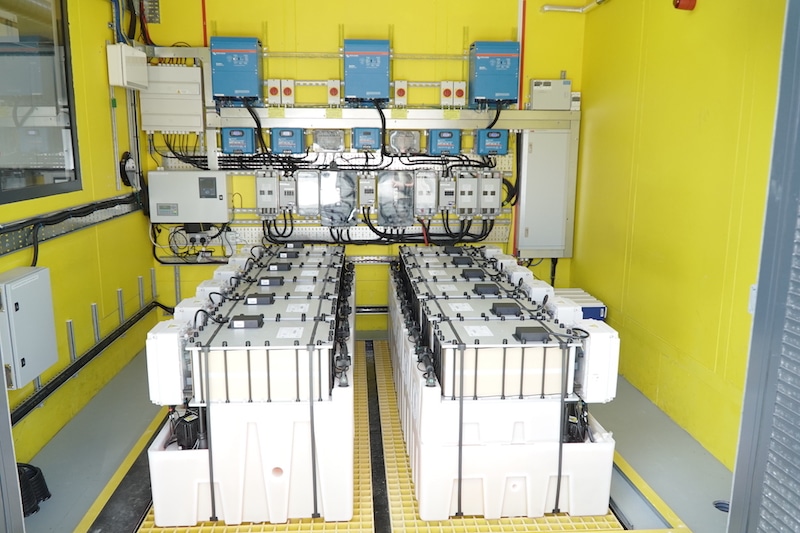Vanadium redox flow batteries are still not major technologies in the Australian energy storage market, even though they were first developed on Australian soil almost 40 years ago. But this week, in a strange synchronicity, two Australian vanadium producers announced new strategic plans.
TNG Limited, anAustralian mining technology company that owns the Mount Peake vanadium-titanium-iron project, said this week that it has agreed to set up a joint venture with Singapore-based vanadium redox flow battery manufacturer V-Flow Tech. They will collaborate on the development and delivery of new energy power systems, underpinned by vanadium redox flow batteries. V-Flow will supply the battery systems, while TNG will supply high-purity vanadium electrolyte to operate them.
The vanadium electrolyte will be produced at TNG’s Mount Peake project, 230 km north of Alice Springs in the Northern Territory. The site is set to produce around 6,000 tons of vanadium pentoxide for vanadium redox flow batteries. TNG said the joint venture represents a major step toward in achieving its vision of becoming a commercial supplier of vanadium redox flow battery systems in Australia.
Popular content
Australian Vanadium, meanwhile, also announced plans this week to become a commercial supplier of vanadium flow batteries in Australia. It is now developing a new strategy under its VSUN unit. Australian Vanadium is also following in TNG’s footsteps, as it has filed a patent application for its vanadium processing route.
To continue reading, please visit our pv magazine Australia website.
This content is protected by copyright and may not be reused. If you want to cooperate with us and would like to reuse some of our content, please contact: editors@pv-magazine.com.



By submitting this form you agree to pv magazine using your data for the purposes of publishing your comment.
Your personal data will only be disclosed or otherwise transmitted to third parties for the purposes of spam filtering or if this is necessary for technical maintenance of the website. Any other transfer to third parties will not take place unless this is justified on the basis of applicable data protection regulations or if pv magazine is legally obliged to do so.
You may revoke this consent at any time with effect for the future, in which case your personal data will be deleted immediately. Otherwise, your data will be deleted if pv magazine has processed your request or the purpose of data storage is fulfilled.
Further information on data privacy can be found in our Data Protection Policy.